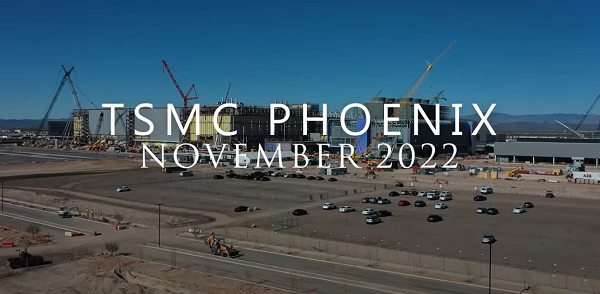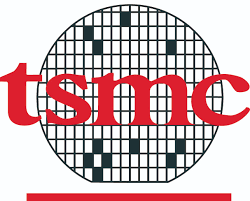
From a TSMC video.
Editor’s Note: This story, originally published on Dec. 5, was updated on Dec. 6.
Pointing to high costs and a US skills shortage, Taiwanese chip manufacturer TSMC has reported challenges to the completion by next December of its new 4 nanometer semiconductor plant north of Phoenix, according to a story in The Wall Street Journal on Dec. 5.
“The $12 billion Arizona semiconductor plant under construction that President Biden is visiting Tuesday represents U.S. hopes for a renaissance in manufacturing, but the Taiwanese company building it says it won’t be easy,” the Journal article stated. “High costs, lack of trained personnel and unexpected construction snags are among the issues cited by Taiwan Semiconductor Manufacturing Co. as it rushes to get the north Phoenix factory ready to start production in December 2023.”
“A range of construction costs and project uncertainty in Phoenix makes building the same advanced logic wafer fab in Taiwan considerably less capital intensive,” TSMC said in a letter last month to the Commerce Department. “The real barrier” to setting up manufacturing in the U.S. “is comparative cost to build and operate,” it said.
Tomorrow, with President Biden and other Administration officials in attendance, TSMC will hold a “tool-in” ceremony at the Arizona plant, installing the initial pieces of manufacturing equipment onto the shop floor, the Journal reported.
In addition, on December 6 TSMC announced it has started the construction of a second fab that is scheduled to begin production of 3nm process technology in 2026. The overall investment for these two fabs will be approximately US$40 billion, representing the largest foreign direct investment in Arizona history and one of the largest foreign direct investments in the history of the United States, TSMC said.
The company said that when complete, the two Arizona fabs will manufacture over 600,000 wafers per year,
TSMC is the manufacturer of choice for NVIDIA, AMD, Samsung and other designers – including Intel – of advanced server chips used in HPC. With Taiwan the target of military threats from the Peoples Republic of China, the company and its manufacturing facilities on the island are embroiled in a global technological and geopolitical struggle. It’s even been suggested that if the PRC were to invade Taiwan that TSMC’s fabs should be blown up.
The Journal article noted that as of three decades ago, nearly 40 percent of the world chip production capacity was located in the U.S., but has since dropped to 12 percent – which could help explain TSMC’s challenges in finding U.S. employees with chip manufacturing skills.
 TSMC Founder Morris Chang said chip manufacturing costs in the U.S. are about 50 percent higher than in Taiwan, and TSMC also told the Commerce Department that federal regulations and addition site preparation have raised the cost of the Arizona plant – despite TSMC shipping “as much equipment as possible from Taiwan, including clean-room equipment and chip-making tools, because American suppliers cost more or aren’t available, people familiar with the project said,” according to Journal.
TSMC Founder Morris Chang said chip manufacturing costs in the U.S. are about 50 percent higher than in Taiwan, and TSMC also told the Commerce Department that federal regulations and addition site preparation have raised the cost of the Arizona plant – despite TSMC shipping “as much equipment as possible from Taiwan, including clean-room equipment and chip-making tools, because American suppliers cost more or aren’t available, people familiar with the project said,” according to Journal.
On its hiring challenges, the Arizona facility now has about 1,000 employees with that number expected to double in 2023. To induce Taiwan-based TSMC engineers to move to Arizona, the company has offered doubled salaries and higher benefits, the Journal reported.
The company also said on Dec. 6 that TSMC Arizona is in the planning stages for an on-site industrial water reclamation plant that, when finished, will
allow the TSMC Arizona site to achieve near zero liquid discharge.



